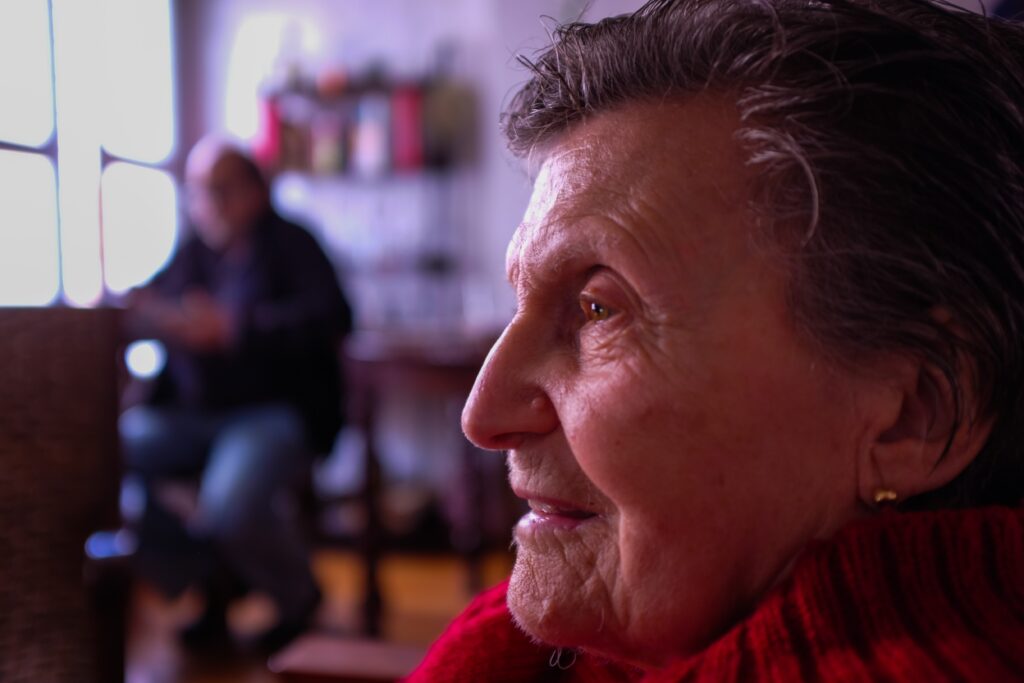Winters can be cold, harsh, and tough to handle in some areas of the world. They are especially difficult when you care for a loved one with dementia.
Dementia symptoms tend to flare up or worsen as the winter goes on. This effect happens for several reasons, and you may wonder how to make winter experiences better for your loved one.
Sleep Problems Due to Shorter Daylight Hours
During the winter season in the world’s northern hemisphere, there are fewer hours of daylight. Many people struggle with poor mental health during winter for this reason.
One of the biggest reasons winter worsens dementia symptoms is because it interferes with quality sleep. Sleep is one of the most important parts of your loved one’s health.
People with dementia may experience sleep disturbances as it gets darker earlier in the evening throughout the winter. Their circadian rhythms will be out of tune, and sleep cues may not come as naturally as they do during the rest of the year.
Without enough quality sleep, people with dementia often suffer from heightened confusion, aggravation, and cognition problems.
Sundowning Worsens
If you notice that your loved one struggles more in the evening, there is a scientific reason behind it. A phenomenon called “sundowning” happens during the evening in people with dementia.
As afternoon turns into evening, many dementia patients get more agitated and confused. Since this typically occurs as it gets dark outside, sundowning can be harder to deal with during the winter when darkness comes early.
Sundowning can cause sleep problems on its own, and winter weather can make it even worse.
Seasonal Affective Disorder (SAD)
Seasonal affective disorder (SAD) affects people of all ages and backgrounds yearly. People with dementia can also experience SAD when daylight hours become shorter.
Your brain needs a certain amount of sunlight to produce mood-boosting brain chemicals like serotonin. During the winter, many people become depressed, anxious, irritable, and isolated due to the lack of sunlight.
Combined with sundowning, SAD can make life difficult for people with dementia and their caregivers.
Problems with Vision and Spatial Awareness
Darkness can be a problem for people with dementia because they need extra visuospatial support. This means that they need help with seeing, navigating, and making sense of the spaces around them.
Dementia affects parts of the brain that control visual perception and interpretation. During dark winter months, visuospatial awareness becomes even more challenging for your loved one.
How to Cope with Dementia Struggles During the Winter
There are many effective strategies that you can try to help manage your loved one’s symptoms during the winter.
Managing dementia behaviors can be exhausting and draining all at once. However, if you implement the right tools and support in advance, you can stay ahead of the winter struggles you may face.
1. Take Advantage of Daylight
Whenever possible, take your loved one outdoors to soak up the sunlight during the winter. This can look different for each individual.
Taking walks and sitting on the front porch are great ways to take advantage of limited sunlight in the winter. These activities do not require too much physical effort or strain from your loved one, but they benefit their health (and yours, too).
Sun exposure promotes vitamin D production in the body, boosting mood, immunity, and cognitive functioning. If you cannot go outside for sun exposure, consider adding a vitamin D supplement to your loved one’s routine.
2. Use SAD Lamps
Special lights are designed to simulate sunlight without the sun’s harmful UV rays. These are usually called “SAD lamps,” as they combat the seasonal affective disorder.
SAD lamps emit a specific type of light that can boost your loved one’s mood, regulate their sleeping schedule, and reduce confusion about the time of day.
When your loved one’s circadian rhythm is on track, their mood is more likely to remain positive and manageable.
3. Dress Appropriately for the Weather
If you go outdoors to take a walk or participate in group activities, make sure your loved one is dressed appropriately. Keeping them warm and comfortable will alleviate some of their stress during winter.
Make sure you have the following winter clothing items on hand:
- Hats
- Scarves
- Gloves or mittens
- Weatherproof boots
- Warm winter coats
These items protect your loved one’s skin from harsh winter wind, ice, and snow.
4. Remember to Take Care of Yourself
As a caregiver, you must make time and space for yourself to properly care for your loved one. Your mental health is just as important as your loved one’s.
Ask for support from trusted family members so you can take a break from caregiving. This might mean taking a whole day to yourself or having a short solo lunch break outside of the house.
You cannot pour from an empty cup. Make sure you prioritize your loved one’s and your mental health this winter season.

